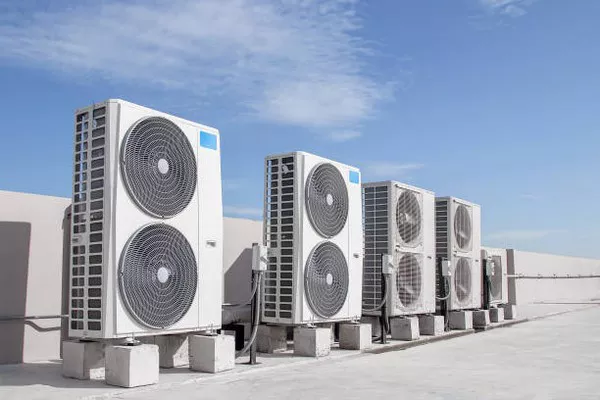Refrigeration systems are integral to modern life, playing a crucial role in preserving food, medicines, and various other perishable products. These systems are found in our homes, businesses, and industries, enabling us to maintain controlled temperatures and humidity levels. At the heart of every refrigeration system lies a vital component: the compressor. In this article, we will explore the purpose of compressors in refrigeration systems, delving into their mechanics, types, and significance in maintaining optimal cooling and efficiency.
The Function of a Refrigeration System
Before delving into the specifics of compressors, it is essential to understand the primary function of a refrigeration system. At its core, a refrigeration system serves to transfer heat from one location to another, typically from a lower-temperature space (the refrigerated space) to a higher-temperature space (the surroundings). This transfer of heat is achieved through a continuous cycle of compression, condensation, expansion, and evaporation.
The refrigeration cycle starts with a low-pressure, low-temperature refrigerant gas absorbing heat from the refrigerated space and evaporating into a gas. This low-temperature gas is then compressed to a higher pressure and temperature by the compressor, after which it undergoes condensation, releasing heat to the surroundings and becoming a high-pressure, high-temperature liquid. The liquid refrigerant then goes through an expansion valve, where it rapidly expands and evaporates, absorbing heat once again, and the cycle repeats.
Understanding Compressors
The compressor is the heart of the refrigeration system, responsible for the crucial compression stage of the refrigeration cycle. Its primary function is to raise the pressure and temperature of the refrigerant gas, causing it to become a high-pressure, high-temperature vapor that can release heat efficiently during the subsequent condensation stage.
Types of Compressors
There are various types of compressors used in refrigeration systems, each with its unique characteristics and applications. The most common compressor types include:
1.Reciprocating Compressors: These compressors use a piston-cylinder arrangement to compress the refrigerant gas. They are known for their reliability and versatility, making them suitable for both residential and commercial refrigeration systems.
2. Rotary Compressors: Rotary compressors use a rotating mechanism to compress the refrigerant. They are compact and efficient, making them suitable for smaller refrigeration applications, such as air conditioning units.
3. Scroll Compressors: Scroll compressors feature two spiral-shaped scrolls—one stationary and one rotating—to compress the refrigerant. They are known for their quiet operation and are commonly used in residential and light commercial air conditioning systems.
4. Centrifugal Compressors: These compressors use a high-speed rotating impeller to compress the refrigerant gas. They are commonly found in large industrial refrigeration systems and air conditioning units.
5. Screw Compressors: Screw compressors use two interlocking helical rotors to compress the refrigerant gas. They are efficient and suitable for various industrial applications.
The Significance of Compressors in Refrigeration Systems
Temperature Control: Compressors play a vital role in maintaining the desired temperature within a refrigerated space. By compressing the refrigerant, they ensure that it can release heat effectively during the condensation stage, allowing for efficient cooling.
Energy Efficiency: Proper compressor selection and operation are critical for the overall energy efficiency of a refrigeration system. An appropriately sized and well-maintained compressor can significantly reduce energy consumption, leading to cost savings.
System Reliability: The reliability of a refrigeration system depends on the performance and durability of its compressor. Compressors are designed to withstand various operating conditions and are a key factor in the overall longevity of the system.
Cooling Capacity: The cooling capacity of a refrigeration system is closely linked to the compressor’s ability to compress the refrigerant gas effectively. A well-designed compressor can ensure that the system can maintain the desired temperature even in challenging conditions.
Environmental Impact: Compressors also play a role in reducing the environmental impact of refrigeration systems. Many modern compressors are designed to use environmentally friendly refrigerants with lower global warming potential (GWP) to minimize their contribution to climate change.
Challenges and Innovations
While compressors are essential components of refrigeration systems, they are not without challenges. Some of the common challenges associated with compressors include:
Refrigerant Compatibility: The choice of refrigerant is critical, as different compressors are designed for specific refrigerants. Changes in environmental regulations and the phase-out of certain refrigerants have prompted innovations in compressor technology to accommodate newer, eco-friendly refrigerants.
Energy Efficiency: With a growing emphasis on energy conservation and sustainability, there is a constant drive to improve the energy efficiency of compressors. This has led to the development of advanced compressor designs and control systems that optimize performance while reducing energy consumption.
Noise Reduction: Compressors can produce noise during operation, which can be a concern in residential and commercial settings. Manufacturers are investing in noise reduction technologies to make compressors quieter without sacrificing performance.
Durability: Compressors must endure various operating conditions, including temperature extremes and continuous operation. Ongoing research and development aim to enhance the durability and reliability of compressors to extend their service life.
Conclusion
In the realm of refrigeration systems, compressors are the unsung heroes, responsible for the vital task of raising the pressure and temperature of the refrigerant gas, enabling efficient cooling and temperature control. Their significance in maintaining the performance, energy efficiency, and reliability of refrigeration systems cannot be overstated.
As technology continues to advance, the role of compressors in refrigeration systems is evolving, with a focus on environmental sustainability, energy efficiency, and noise reduction. Compressors are not just essential components; they are the driving force behind the cooling systems that have become indispensable in our daily lives. Their continued development and improvement will play a pivotal role in addressing the challenges of tomorrow’s refrigeration needs while minimizing their environmental impact.

